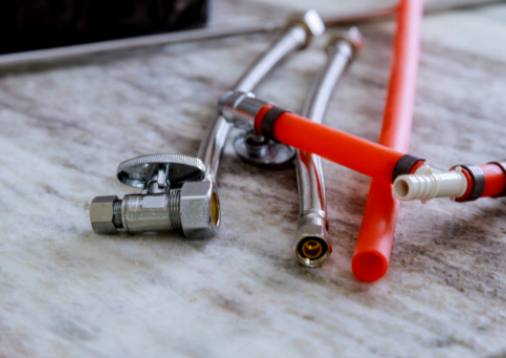Clogged drains are a common issue in any modern home, and if left unattended, they can lead to costly repairs and potential health hazards. Understanding the signs, causes, and consequences of drain blockages is crucial in maintaining a healthy and efficient plumbing system. In this article, we will explore the escalating damage caused by neglecting clogged drains, methods for preventing blockages, potential health risks, professional solutions for drain cleaning, and the cost implications of delayed maintenance.

Understanding Clogged Drains and Impact on Plumbing System
Clogged drains are a common issue in many households and can have a significant impact on the plumbing system. When a drain becomes blocked, it restricts the flow of water through the pipes, which can lead to a backup of water and other materials. This not only causes inconvenience in the home, but it can also lead to potential damage to the plumbing system.
The impact of clogged drains on the plumbing system is significant. When a drain is blocked, it can cause an increase in pressure within the pipes, which can lead to leaks and even burst pipes. Additionally, the buildup of debris and materials in the drains can cause corrosion and damage to the pipes over time. As a result, neglecting clogged drains can lead to costly repairs and replacements of the plumbing system.
It's important for homeowners to understand the potential impact of clogged drains on their plumbing system in order to take proactive measures to prevent and address blockages in a timely manner. By being aware of the signs and causes of drain blockages, homeowners can effectively maintain their plumbing system and avoid the escalating damage that can result from neglected clogged drains.
Signs and Causes of Drain Blockages
When water takes longer than usual to drain from sinks, showers, or tubs, it could indicate a buildup of debris in the pipes. Another sign to watch out for is gurgling noises coming from the drains, which may indicate trapped air due to an obstruction. Foul odors emanating from the drains can also be a sign of a blockage, as stagnant water and debris can lead to unpleasant smells.
There are several common causes of drain blockages, including the buildup of hair, soap scum, and other debris in bathroom drains. In kitchen sinks, cooking grease and food particles can accumulate and cause blockages. Outside the home, leaves, dirt, and other outdoor debris can cause blockages in outdoor drains. Additionally, mineral buildup from hard water can also contribute to clogged drains. Understanding these common causes can help homeowners take preventative measures to avoid blockages in their plumbing system.
The Escalating Damage from Neglecting Clogged Drains
Neglecting a clogged drain in your home can lead to escalating damage to your plumbing system. Over time, the blockage can cause pressure to build up within the pipes, leading to leaks or even burst pipes. This can result in water damage to your home, leading to costly repairs and potential health hazards from mold and mildew. In addition, neglecting a clogged drain can also put added strain on your plumbing system, potentially leading to the need for more extensive repairs in the future. It's important to address clogged drains promptly to avoid these escalating issues.
Preventing Drain Clogs and Recognizing Early Symptoms
One of the most effective ways to prevent clogs is by being mindful of what goes down the drain. Avoid pouring grease, oil, or food scraps down the kitchen sink, and use drain strainers to catch hair and soap residue in the bathroom.
Regularly cleaning and maintaining your drains can also help prevent clogs from forming. Pouring hot water down the drain or using natural solutions like baking soda and vinegar can help keep them clear. Additionally, scheduling professional drain cleanings on a regular basis can ensure that any buildup or blockages are addressed before they become a major issue.
Recognizing early symptoms of a potential clog is also crucial in preventing costly repairs. Slow drainage, gurgling noises, or foul odors coming from the drain are all signs that there may be a blockage forming. Addressing these symptoms early on can help avoid the escalating damage that neglected clogs can cause to your plumbing system.
Potential Health Risks Associated with Blocked Drains
As water and waste become trapped in the pipes, it creates a breeding ground for bacteria, mold, and other harmful microorganisms. These can contribute to the growth of harmful pathogens that can contaminate the air and water in the home, leading to potential respiratory and skin infections among household members. Additionally, the accumulation of stagnant water in blocked drains can attract pests such as cockroaches and flies, further exacerbating the health risks within the home. Therefore, it is crucial to address clogged drains promptly to maintain a healthy and sanitary living environment for all occupants.
Professional Solutions for Drain Cleaning
Professional plumbers have the experience, tools, and knowledge to effectively clear out even the toughest blockages in your plumbing system. Whether it's using high-powered drain snakes, hydro-jetting, or other specialized equipment, professional plumbers can get your drains flowing smoothly again in no time. Additionally, they can also provide valuable insights and recommendations for preventing future clogs and maintaining the health of your plumbing system. While DIY methods can sometimes work for minor clogs, for more severe blockages and ongoing issues, it's best to rely on the expertise of a professional.
Cost Implications of Delayed Maintenance on Clogged Drains
When a drain is clogged, the water flow is restricted, leading to potential damage to the pipes and plumbing system. Over time, this can result in costly repairs and replacements. Additionally, the buildup of debris and bacteria in the clogged drain can lead to health risks, further increasing the potential costs associated with neglecting a clogged drain. It's important to address clogged drains promptly to avoid these long-term financial implications.
